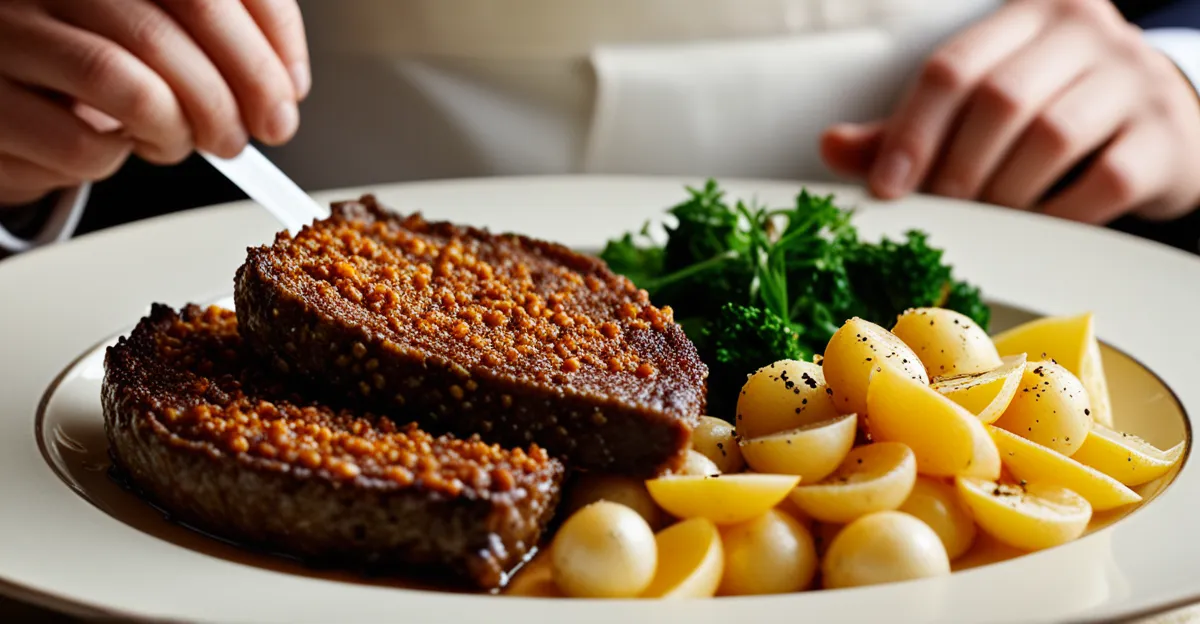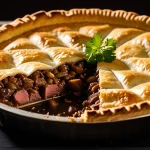Factors Driving the Resurgence of Traditional UK Cooking
The resurgence of British cuisine is strongly rooted in a collective yearning for heritage and nostalgia. Many consumers now seek comfort in authentic, time-honoured recipes that connect them to the past. This trend is not just sentimental; it reflects a deeper appreciation of tradition in UK food culture. The revival of traditional UK food trends highlights a preference for meals that tell a story and preserve cultural identity.
Local food movements have significantly impacted this resurgence by emphasising sustainability and traceability. The demand for local sourcing UK and eco-friendly practices aligns closely with traditional British dishes, which often use seasonal and regionally available ingredients. This connection reinforces both community ties and environmental responsibility.
In parallel : What are the steps to crafting a savory steak and kidney pie?
Consumers increasingly favour dishes grounded in British culinary history, seeking transparency about where and how their food is produced. Such preferences fuel the growth of British culinary revival initiatives, which combine respect for past recipes with modern values. By choosing traditional foods, people participate in a broader movement focused on authenticity, sustainability, and cultural pride.
Historical and Cultural Significance of Traditional British Dishes
The history of British food reveals a rich tapestry of evolving recipes deeply woven into the nation’s identity. Classic dishes often stem from practical origins—simple, hearty meals designed for local climate and available ingredients. For example, regional British recipes like Cornish pasties or Yorkshire puddings reflect distinct local cultures and histories that contribute to the ongoing cultural heritage UK cuisine embodies.
This might interest you : How Can British Culinary Traditions Enhance Your Seasonal Cooking?
Food traditions serve as powerful markers of national identity, connecting people across generations. The endurance of these dishes confirms their significance beyond nutrition; they are stories on a plate, carrying customs and memories. This collective reverence fuels the British culinary revival, where heritage dishes are cherished and preserved.
Moreover, regional recipes are instrumental in shaping the resurgence of traditional UK cooking. They offer a variety of flavours and techniques rooted in geography and history, appealing to those seeking both authenticity and diversity. The focus on preserving these culinary legacies forms a vital part of maintaining the resurgence of British cuisine, highlighting how culinary heritage continually adapts while respecting its origins.
Sustainability and Local Sourcing in UK Cooking
Sustainability is a cornerstone of the resurgence of British cuisine. Traditional UK food trends naturally align with the principles of local sourcing UK because heritage recipes often rely on seasonal, regional ingredients. This connection enhances flavour authenticity and reduces environmental impact. When consumers choose dishes prepared with local produce, they support regional farmers and preserve agricultural biodiversity.
The growth of farm-to-table UK movements exemplifies a practical application of sustainability in modern British cooking. Restaurants specialising in traditional UK dishes now commonly emphasise direct relationships with local suppliers. This practice not only ensures freshness but also fosters transparency in food origins, addressing the consumer demand for ethical and responsible eating.
Public awareness has increased around eco-conscious choices in British cuisine, fueled by concerns about climate change and food miles. Many consumers see sustainable British food as a way to honour culinary heritage while contributing to a greener future. By embracing traditional UK food trends grounded in local sourcing, the British culinary revival supports both cultural preservation and environmental stewardship.
Modern Takes and Innovations by Chefs and Restaurants
Contemporary chefs are at the forefront of the British culinary revival, blending tradition with innovation to redefine modern British cuisine. By reviving classic recipes with fresh techniques, they honour the resurgence of British cuisine while appealing to new tastes. This approach often involves reimagining beloved dishes such as shepherd’s pie or black pudding with inventive presentations or incorporating novel ingredients.
Restaurants specialising in traditional UK dishes showcase this evolution by combining authenticity with creativity. Chefs experiment with plating and textures, offering elevated versions that keep heritage recipes relevant. For example, classic Sunday roasts might be deconstructed or paired with unexpected sauces, enhancing complexity without losing connection to tradition.
This dynamic transforms traditional UK food trends into a living, adaptable cuisine. It also attracts diverse diners eager to experience both nostalgia and novelty. Culinary experts emphasize the balance between respecting time-honoured recipes and pushing boundaries, demonstrating that the revival of British cooking is both a preservation and a reinvention. This ensures the longevity and continued relevance of British food culture in contemporary gastronomy.
Public Perception and Media Influence
Media coverage plays a crucial role in shaping British food public opinion, acting as a bridge between tradition and contemporary audiences. Television programmes and cookbooks celebrating the nostalgia in food trends have reignited interest in classic recipes, making them accessible and appealing. These platforms often highlight the story behind dishes, deepening appreciation and connection.
Changing attitudes, especially among younger generations, reflect evolving tastes influenced by media exposure. As UK cooking media coverage showcases both heritage and innovation, traditional dishes gain fresh relevance. Social media amplifies this effect by enabling users to share experiences, photos, and recipes widely, accelerating the British culinary revival.
Influencers and food bloggers contribute by demystifying traditional meals and reimagining them in modern contexts, encouraging exploration beyond stereotypes. Their engagement helps to normalize and celebrate traditional UK food trends, fostering broader acceptance and enthusiasm. Thus, the interplay of media and public perception actively supports the thriving resurgence of British cuisine.









